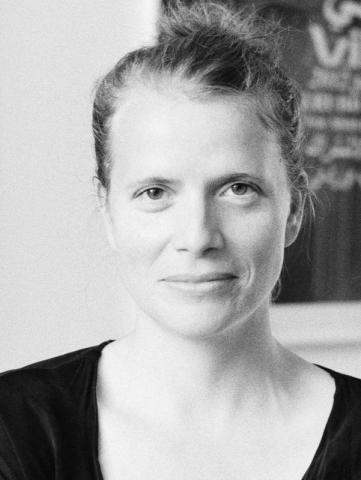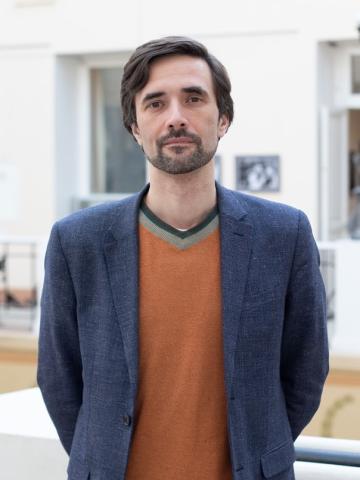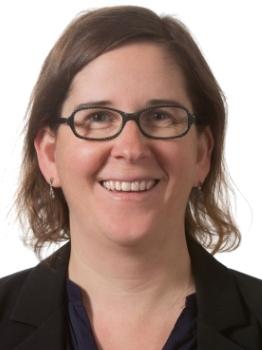The Communication in Post- and Neo-Authoritarian Societies (CPN) Working Group will be holding online elections for one chair and two vice-chair positions, for the term 2025 - 2029.
The elections will be held online from 7 to 21 May using the SurveyMonkey platform.
Individual members and representatives of institutional members in good standing, who are also registered as members of the Communication in Post- and Neo-Authoritarian Societies Working Group by 5 May are eligible to vote. Voters will receive a voting link on 7 May.
To verify if you are a member of the CPN Section, log in to your IAMCR account and select “My Sections and Working Groups” from the menu.
View the candidates and read their statements below.
RRead about the Communication in Post- and Neo-Authoritarian Societies Working Group
More information and timeline at https://iamcr.org/s-wg/elections2025
Candidates
For Chair:
For Vice-chair:
- Alexander Gatilin, Lomonosov Moscow State University, Russian Federation
- Carola Richter, Freie Universität Berlin, Germany
Statements
For Co-chair

Anke Fiedler, University of Greifswald, Germany
I would like to nominate myself for the position of Chair of the Working Group on 'Communication in Post- and Neo-Authoritarian Societies' (CPN). Having served as Vice-Chair of the Working Group for the past four years, I have found this role to be both fulfilling and rewarding. I would be honored to continue to contribute to the ongoing success, development, and future direction of the Working Group.
Over the past few years, we have achieved significant milestones: in addition to maintaining a strong presence at the annual IAMCR conferences, we have organized pre-conferences and local WG events, facilitated publications, and attracted new members.
My research has been particularly shaped by the study of communication structures in the Arab world and sub-Saharan Africa. In addition, I have studied socialist structures in Eastern Europe and transformation after the fall of the Iron Curtain, all from a communication studies perspective.
It has been a privilege to work with colleagues who share similar research interests. I would be delighted to continue to share my expertise with the Working Group and, as a former Vice-Chair, to help preserve its institutional memory.
Thank you for your consideration and support.
Dr. Anke Fiedler
For Vice-chair

Alexander Gatilin, Lomonosov Moscow State University, Russian Federation
Dear Colleagues,
I am honored to nominate myself for the position of vice-chair of the Communication in Post- and Neo-Authoritarian Societies Working Group. As a research fellow at the Faculty of Journalism, Lomonosov Moscow State University (Russia), my academic and practical work has centered on the evolving role of journalism in fostering dialogue, accountability, and social cohesion—themes critical to understanding media systems in complex political contexts.
Over the past decade, my research has focused on local journalism, media ethics, and the interplay between authorities, civil society, and journalists. Since 2014, I have organized a national competition for journalists covering social issues, cultivating a network of over 2,300 regional and local media professionals across Russia. This initiative not only highlights underreported stories but also serves as a dynamic research tool, enabling me to analyze trends, challenges, and resilience in Russia’s regional media landscape. The database has been instrumental in identifying systemic pressures on journalists and opportunities for strengthening their public service role.
My commitment to action-oriented scholarship is reflected in collaborative projects addressing societal inequities. Since 2017, I have coordinated cross-regional journalism initiatives investigating barriers to early autism diagnosis and support for families of children with cerebral palsy. Beyond reporting, these projects bridge journalism and activism: we organized community events for residents of psychoneurological institutions and advocated for inclusive policies. During the COVID-19 pandemic, I co-led a campaign to secure PPE for Russian healthcare workers, recognized by Reporters Without Borders in their list of coronavirus “information heroes.” Such experiences underscore my belief in media’s capacity to mobilize solidarity amid crises.
Currently, I mentor students exploring partnerships between journalists and NGOs, developing strategies to amplify civil society voices. By forming task forces that advise Russian nonprofits on media outreach, we aim to enhance their impact in polarized environments. This work aligns with my academic focus on reimagining journalistic roles in fragmented societies—a priority as deglobalization and polarization strain public discourse.
Since joining IAMCR in 2021, I have actively contributed to the Working Group’s mission by peer-reviewing submissions and engaging with emerging scholarship on media systems in politically complex contexts. This role has allowed me to deepen my understanding of global media transformations, particularly through the lens of methodological innovation and comparative analysis. By rigorously evaluating research proposals and papers, I have gained valuable insights into diverse approaches for studying journalism’s evolving roles, resistance strategies, and dialogue-building practices in post- and neo-authoritarian societies.
The geopolitical turbulence of recent years amplifies the urgency of studying media transformations in post- and neo-authoritarian settings.
In an era of fractured trust, our Working Group must champion rigorous, empathetic scholarship that empowers journalists as architects of dialogue. I am eager to collaborate with you in advancing this mission.
Thank you for considering my candidacy.
Sincerely,
Alexander Gatilin
Lomonosov Moscow State University, Russian Federation

Carola Richter, Freie Universität Berlin, Germany
I am applying for the position of Vice Chair of the Working Group Communication in Post- and Neo-Authoritarian Societies (CPN) within IAMCR. I currently serve as Professor of International Communication at Freie Universität Berlin, Germany.
Over the past two decades, my academic work has focused on analyzing media systems and communication cultures in the Middle East and North Africa (MENA) region. My research also encompasses global foreign news coverage, public diplomacy, and the experiences of media and journalists in exile. My core academic interest lies in examining authoritarian constraints and trajectories within media system structures, alongside illiberal tendencies shaping societal communication. Comparative analysis constitutes a central component of both my research and teaching activities.
The relevance of the CPN Working Group’s approach has grown significantly in light of increasing authoritarian backlashes and illiberal trends worldwide, including within traditionally liberal democracies. A critical examination of communication practices in authoritarian contexts and the broader implications of authoritarian tendencies is urgently needed.
IAMCR has long been my intellectual home. In recent years, I have actively contributed to fostering the cosmopolitanization of media and communication studies in Germany by integrating perspectives from the Global South and emphasizing insights from non-Western societies—an endeavor closely aligned with IAMCR’s mission.
It would be a privilege to collaborate with colleagues in this intellectually stimulating environment. Thank you for considering my application.
Dr. Carola Richter